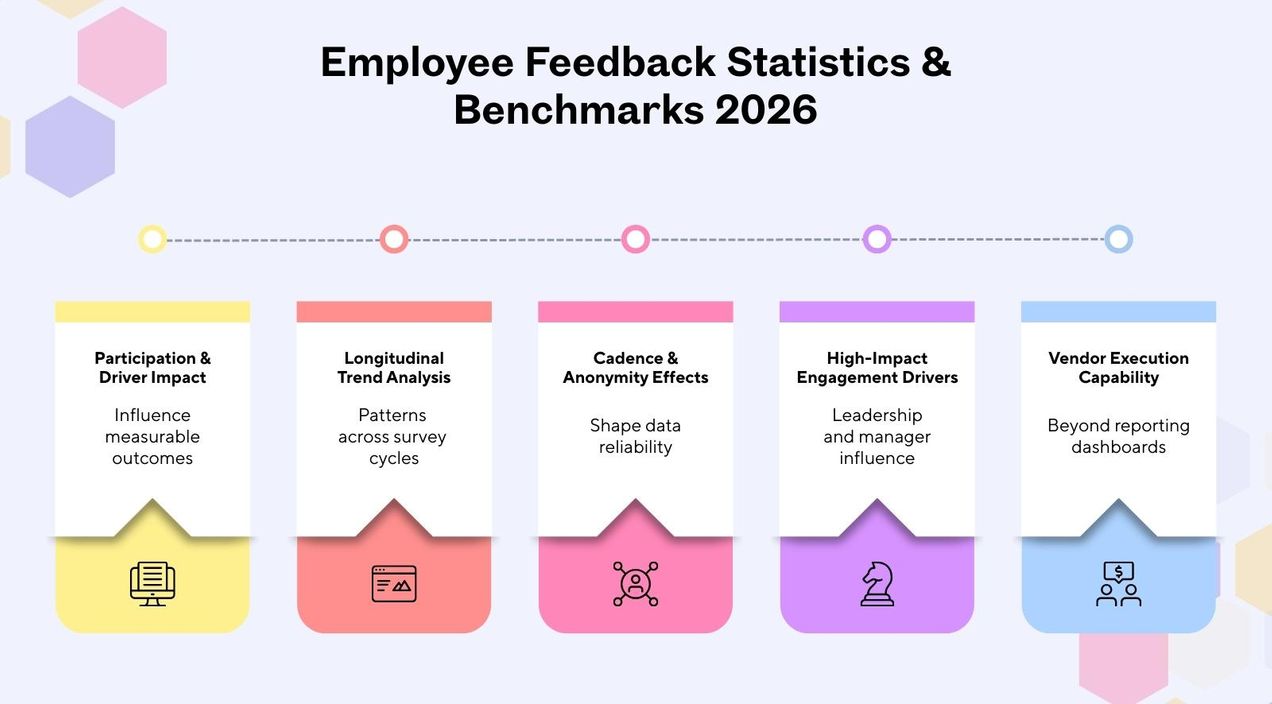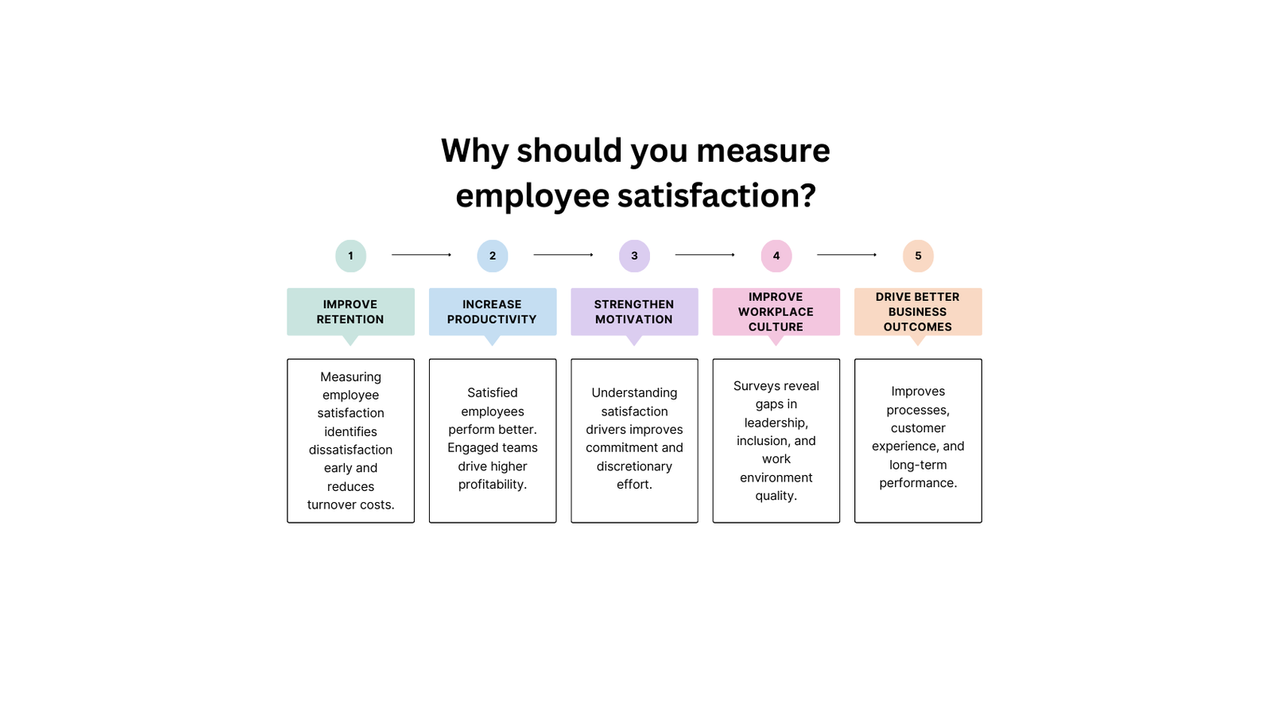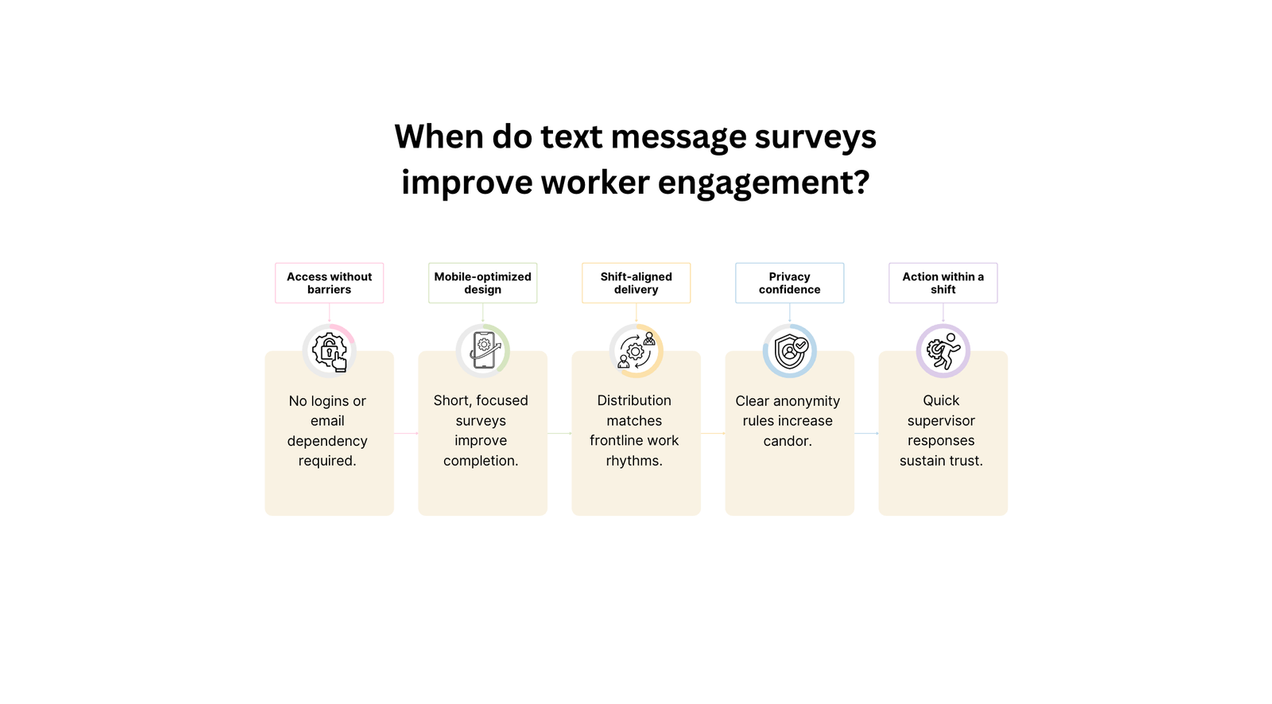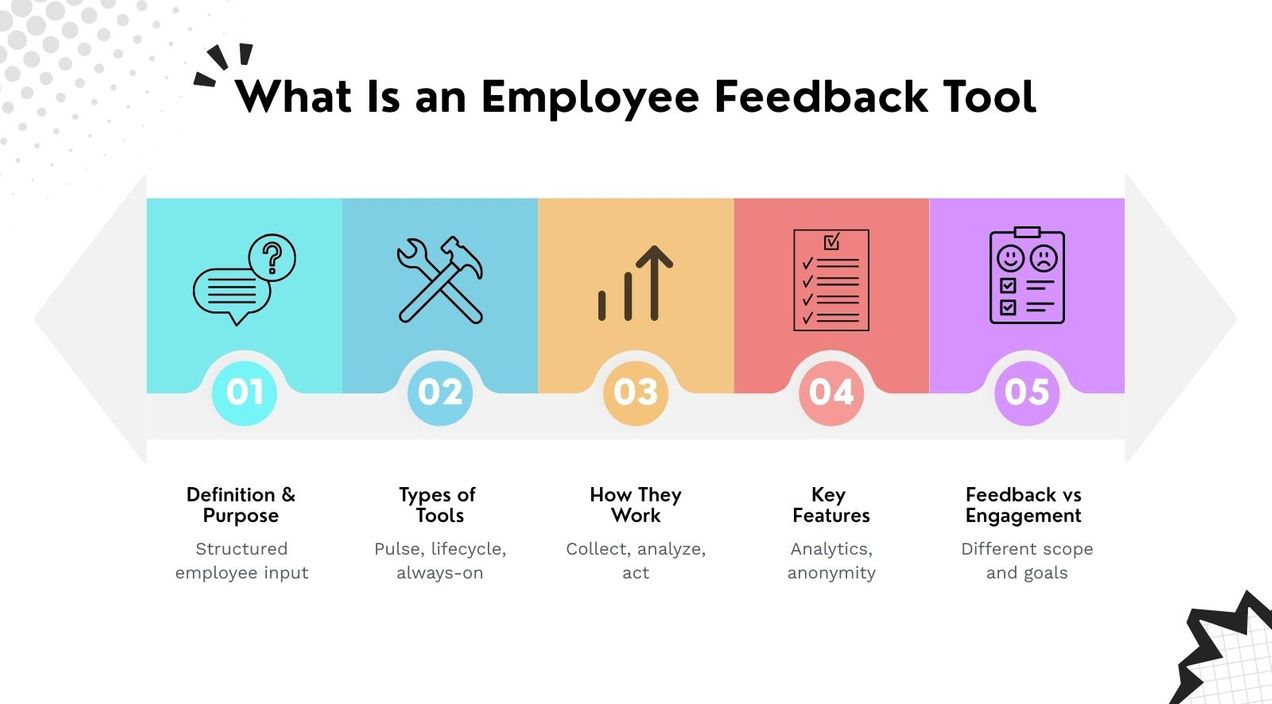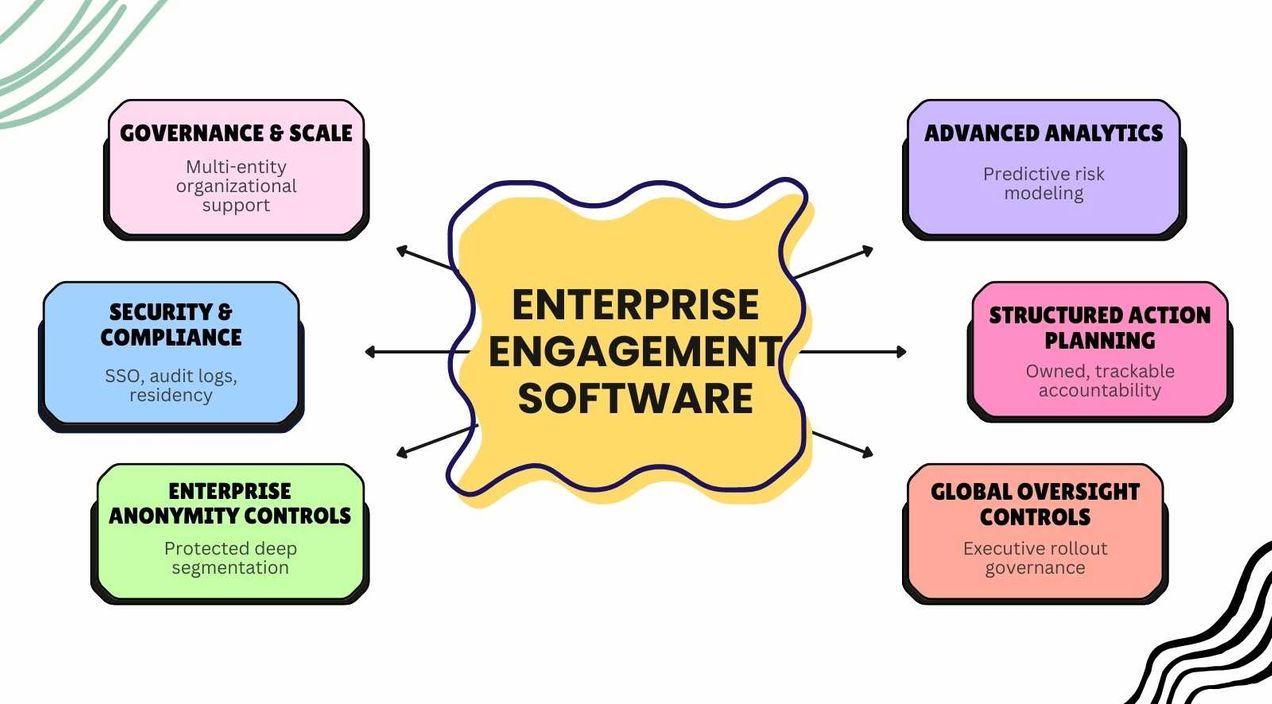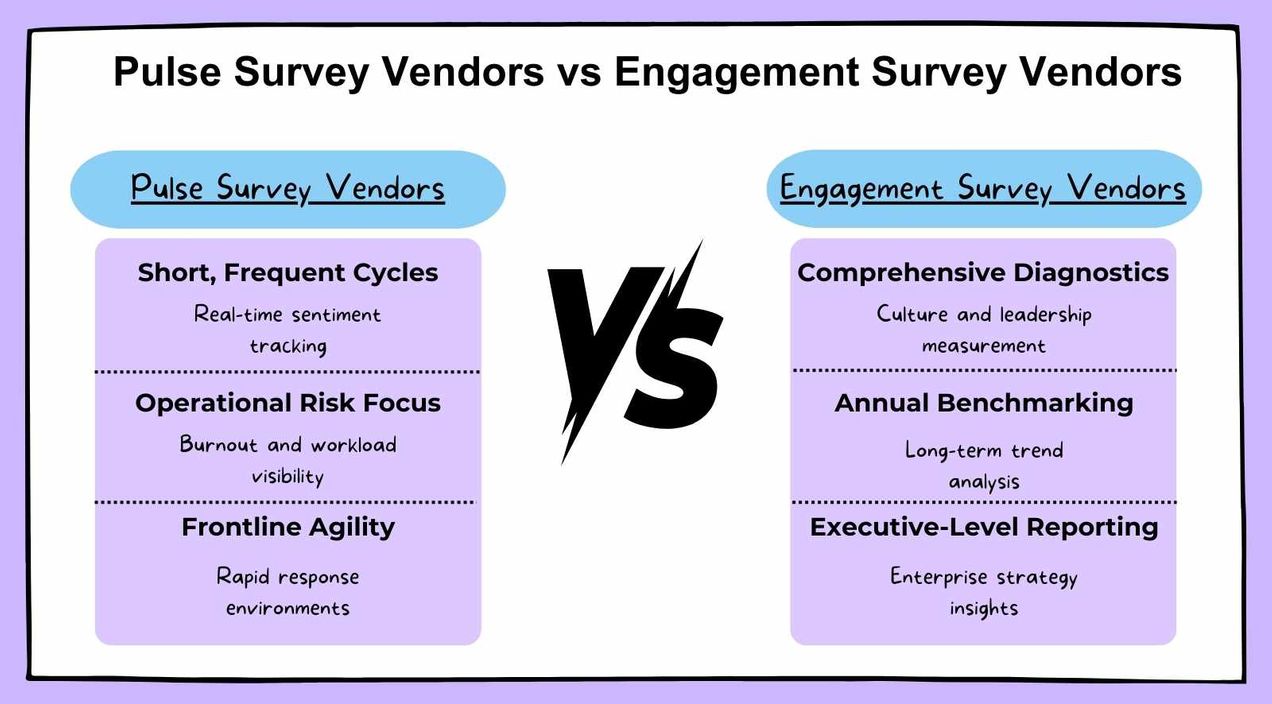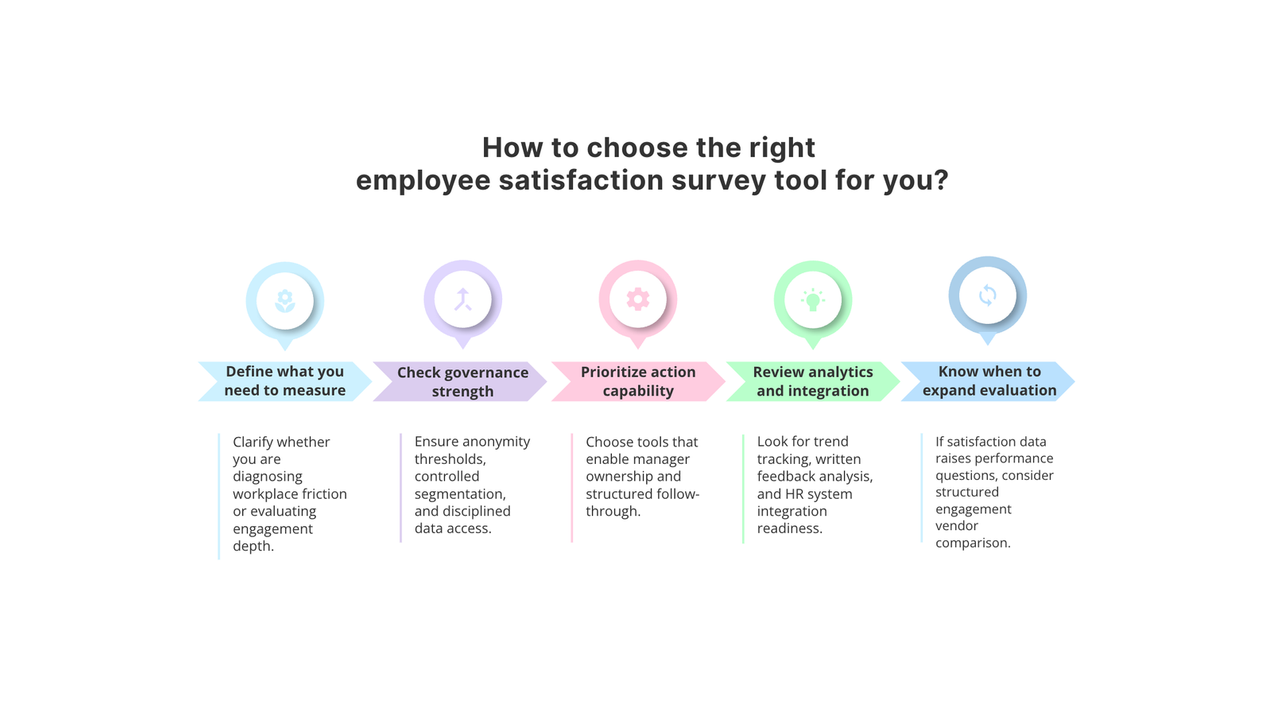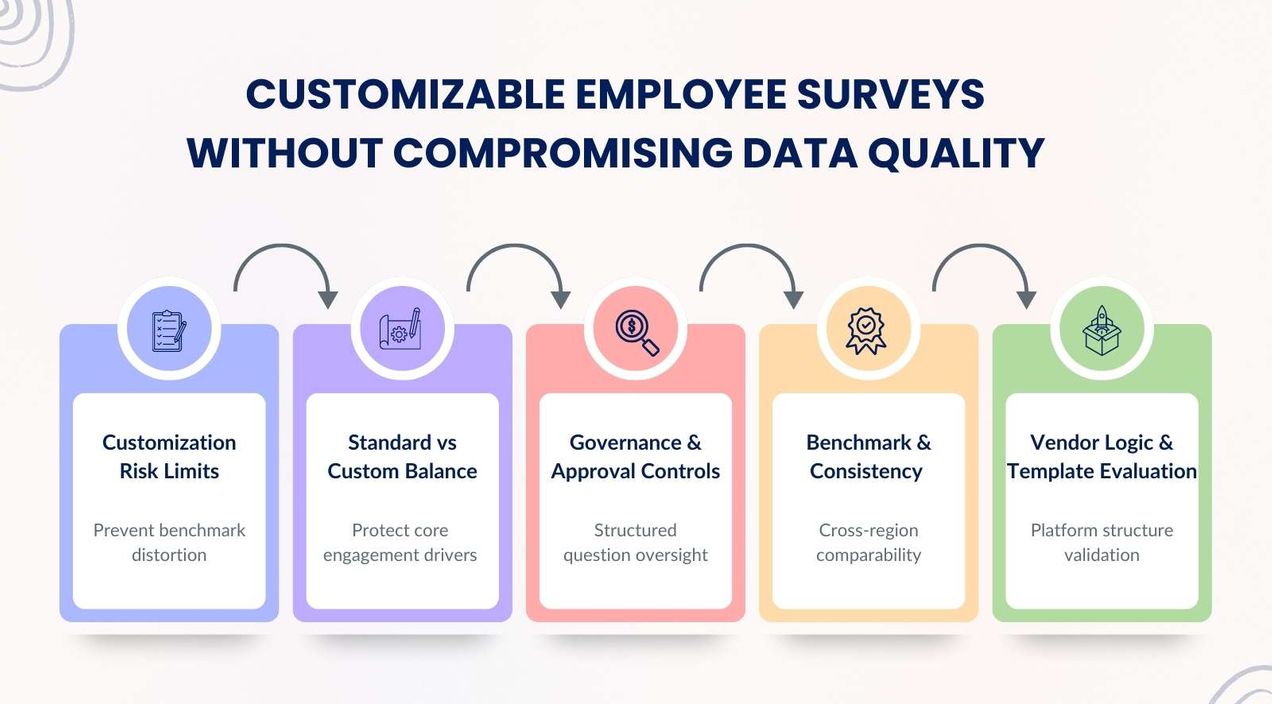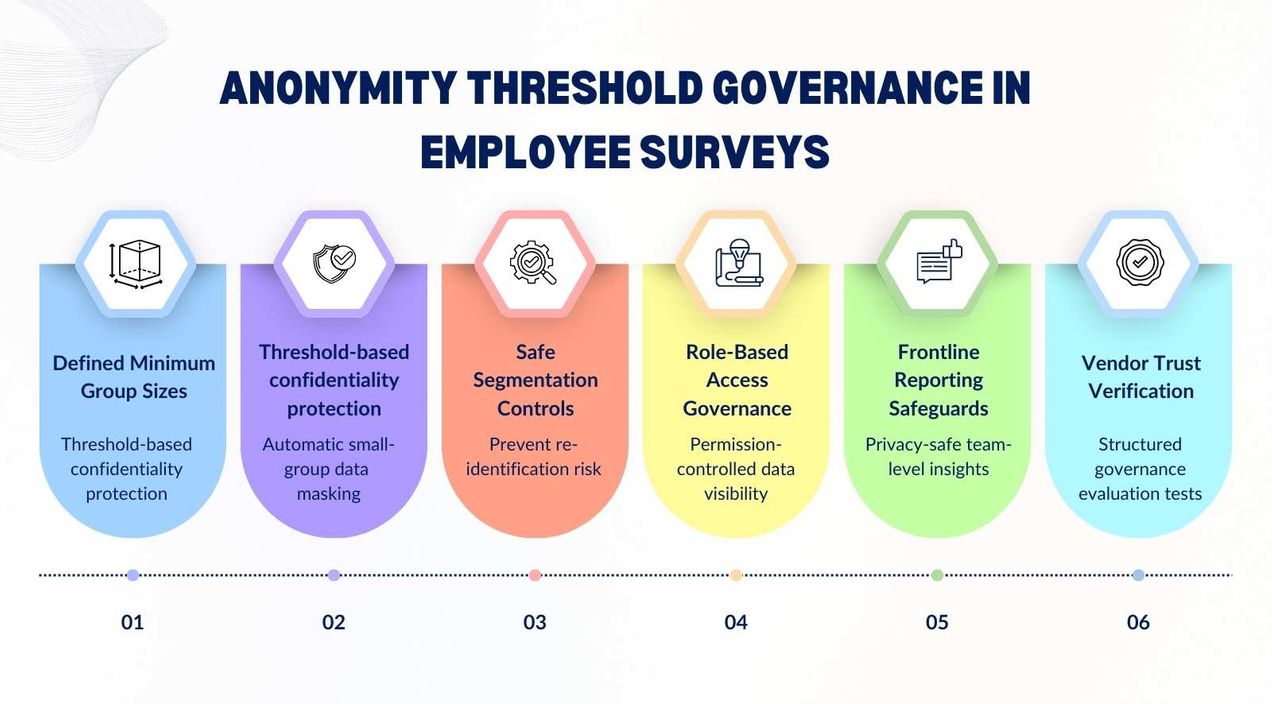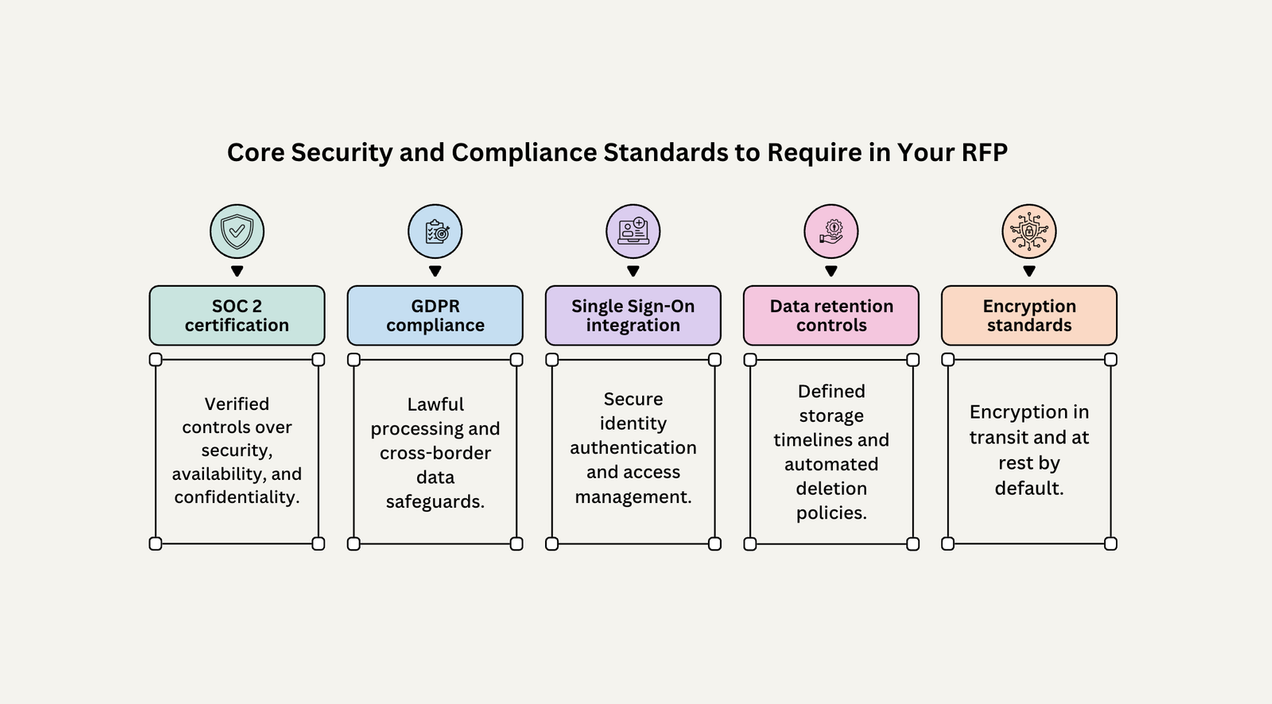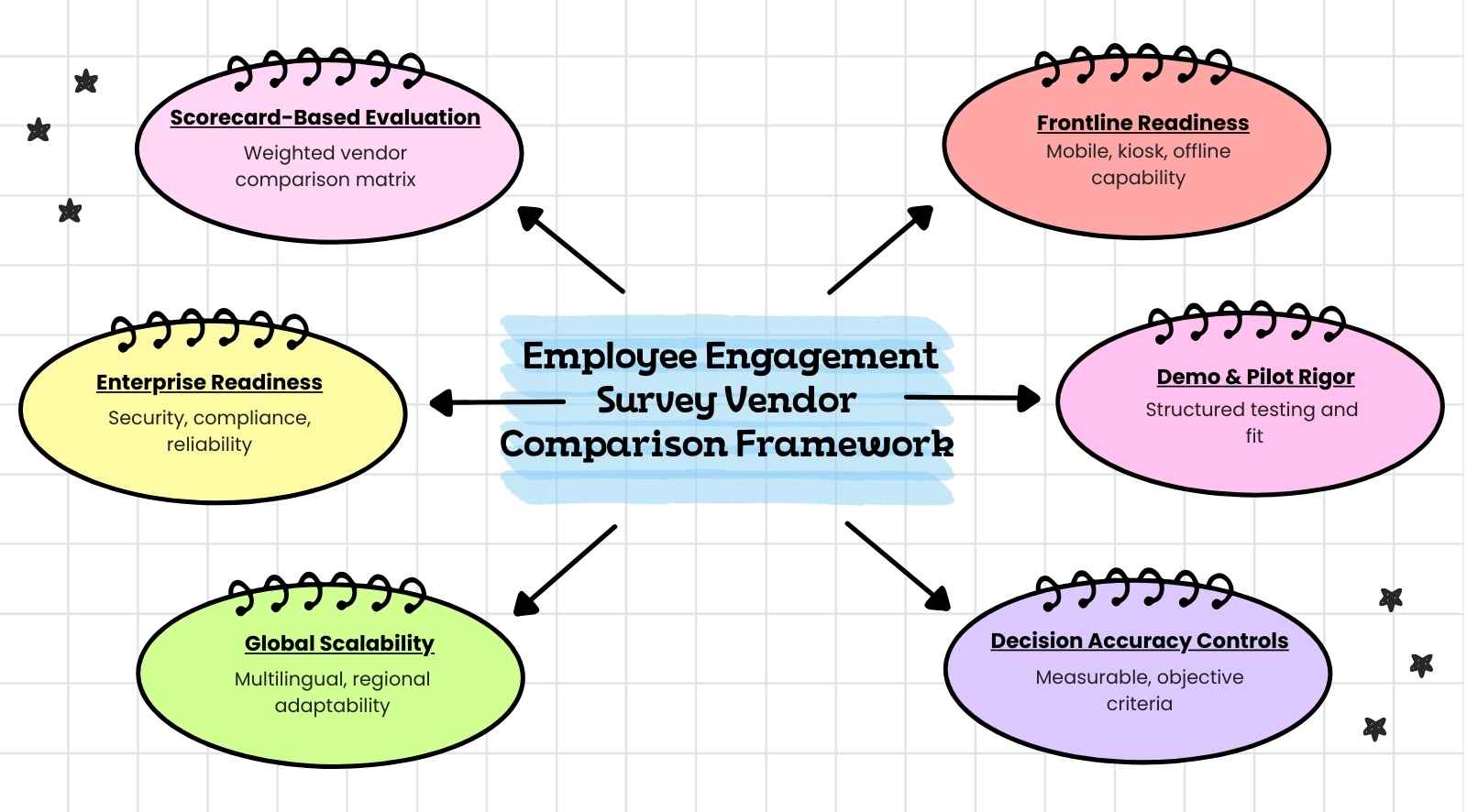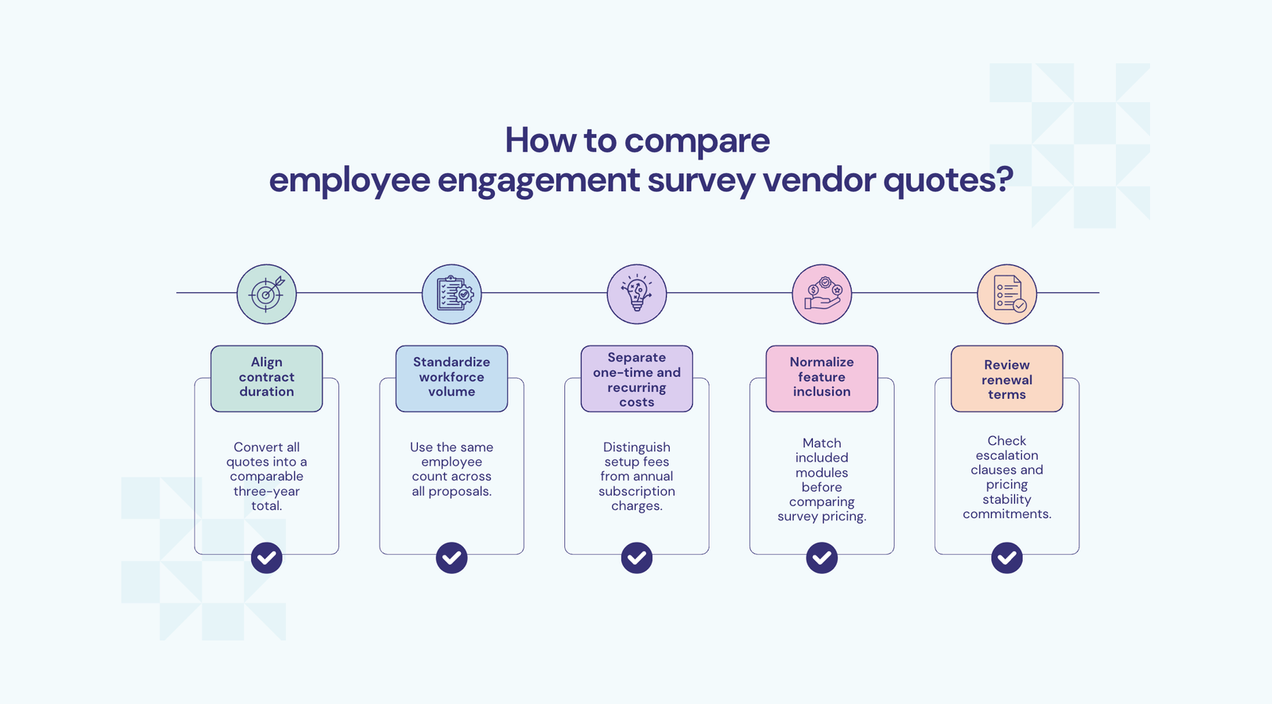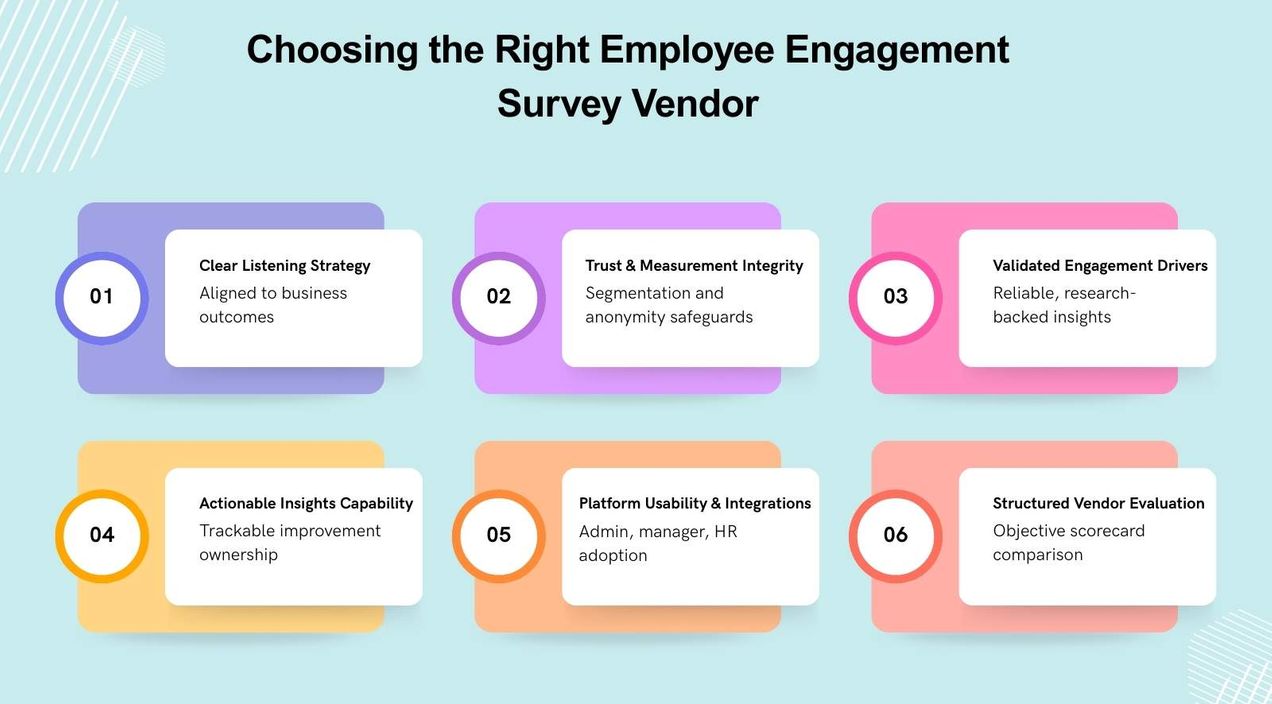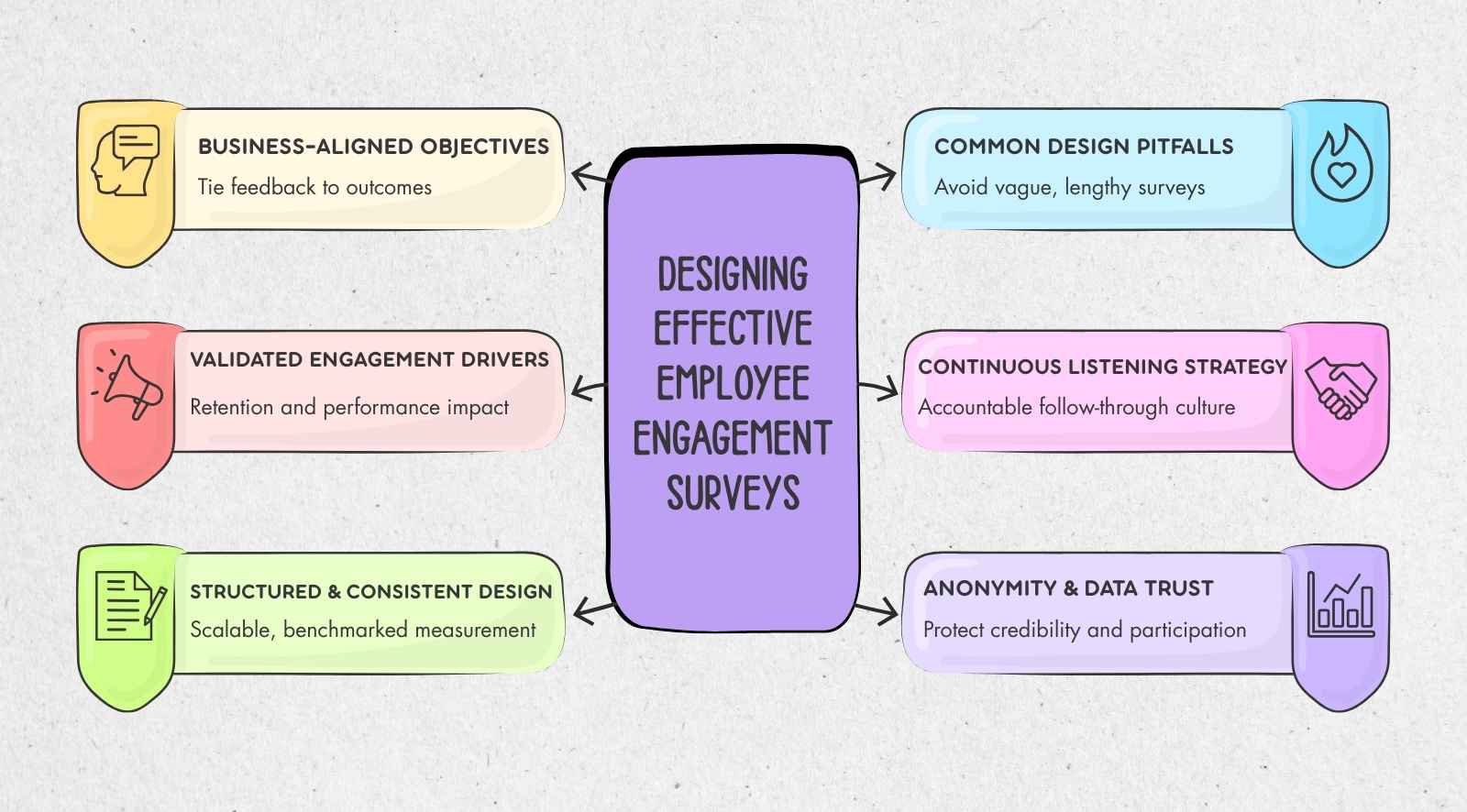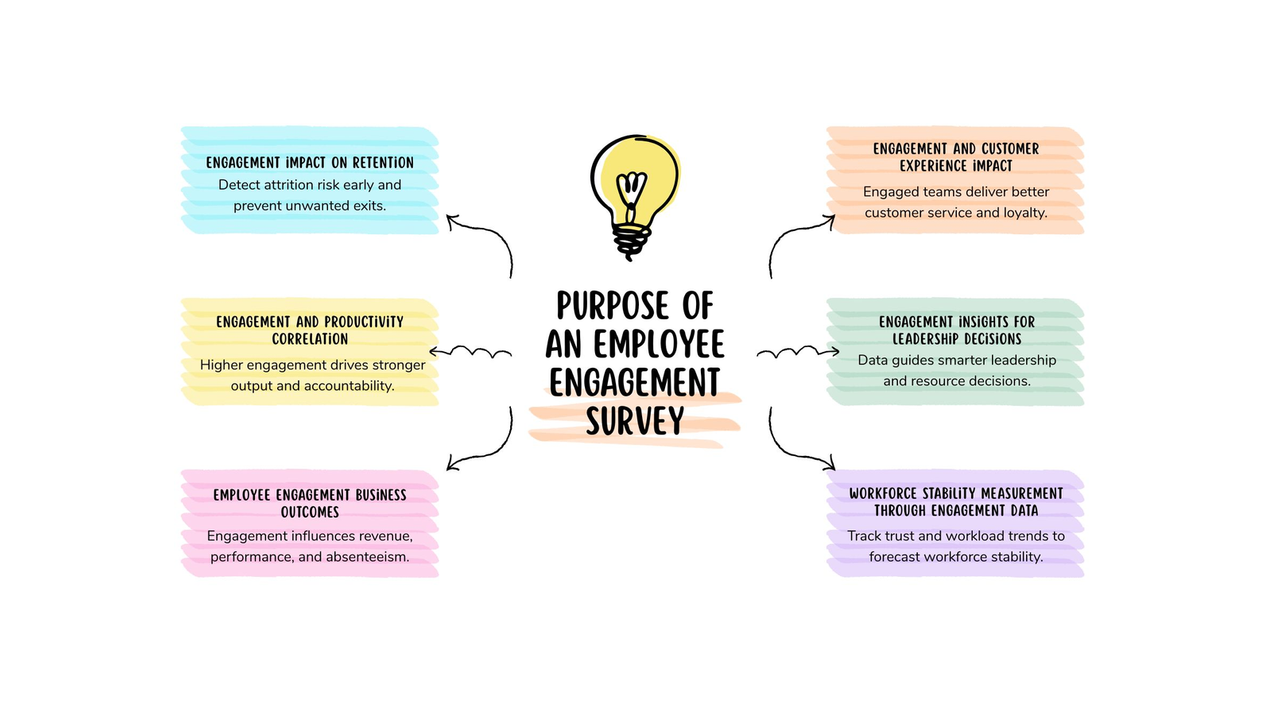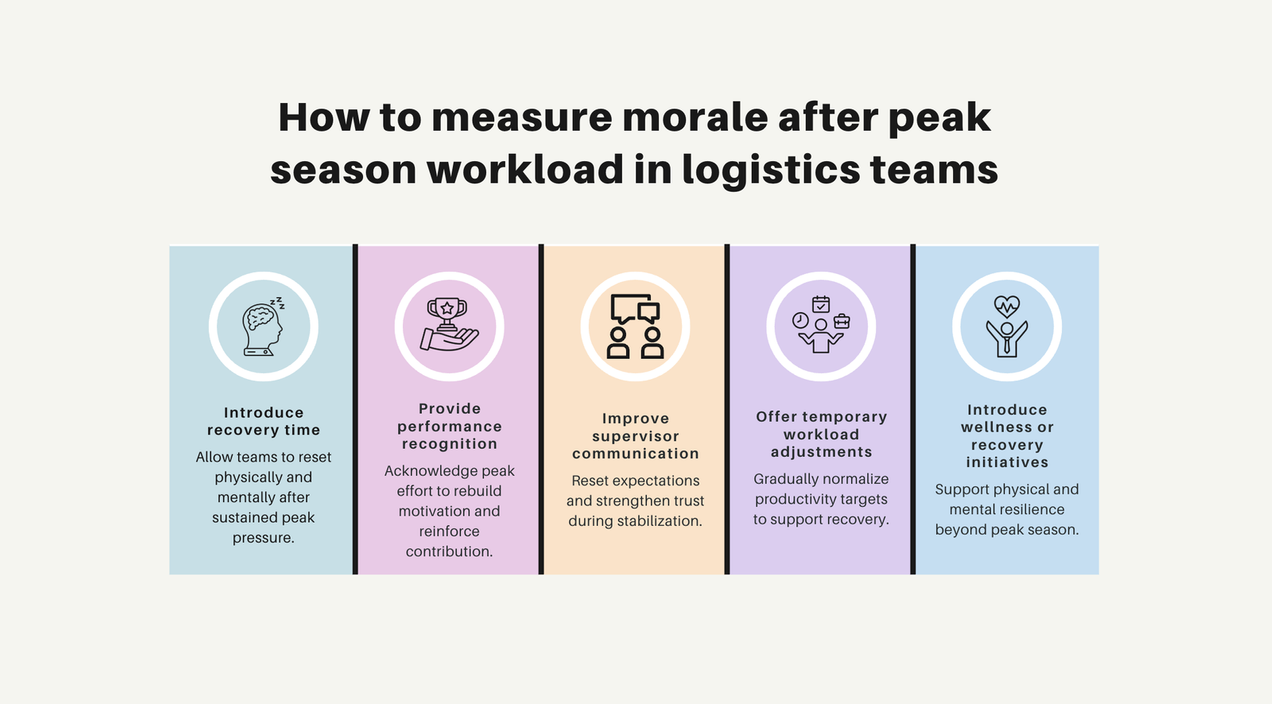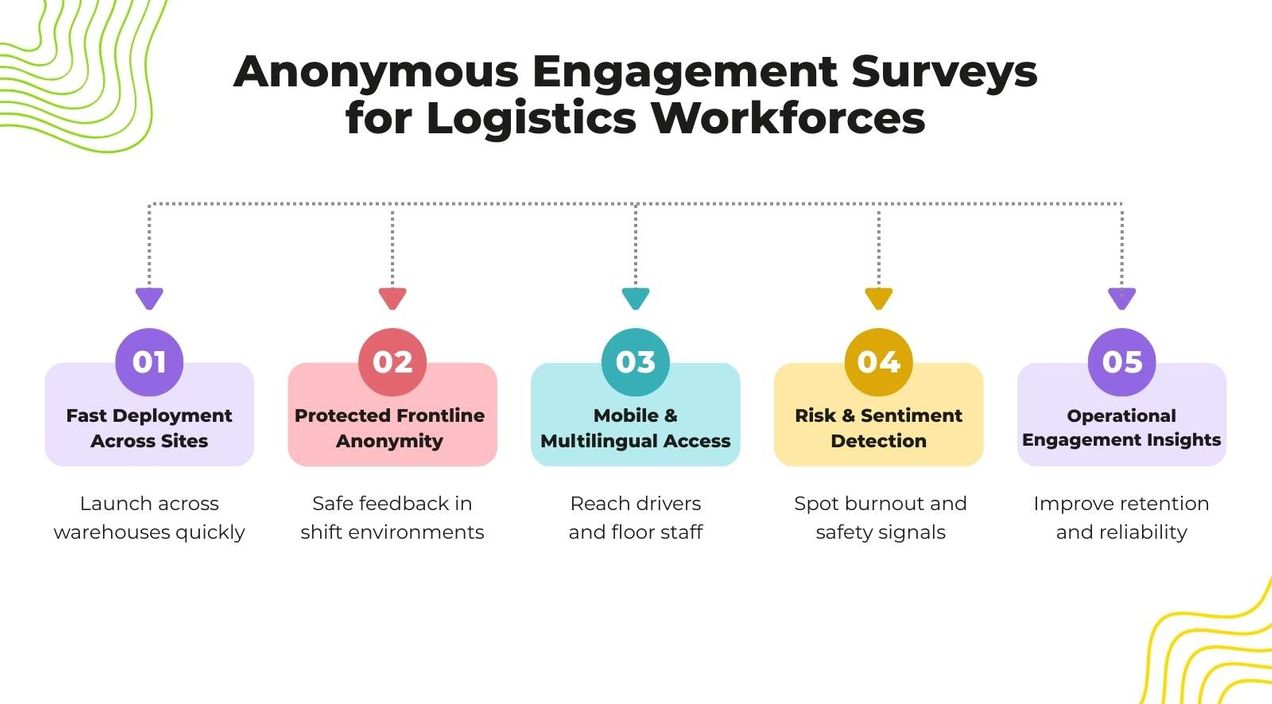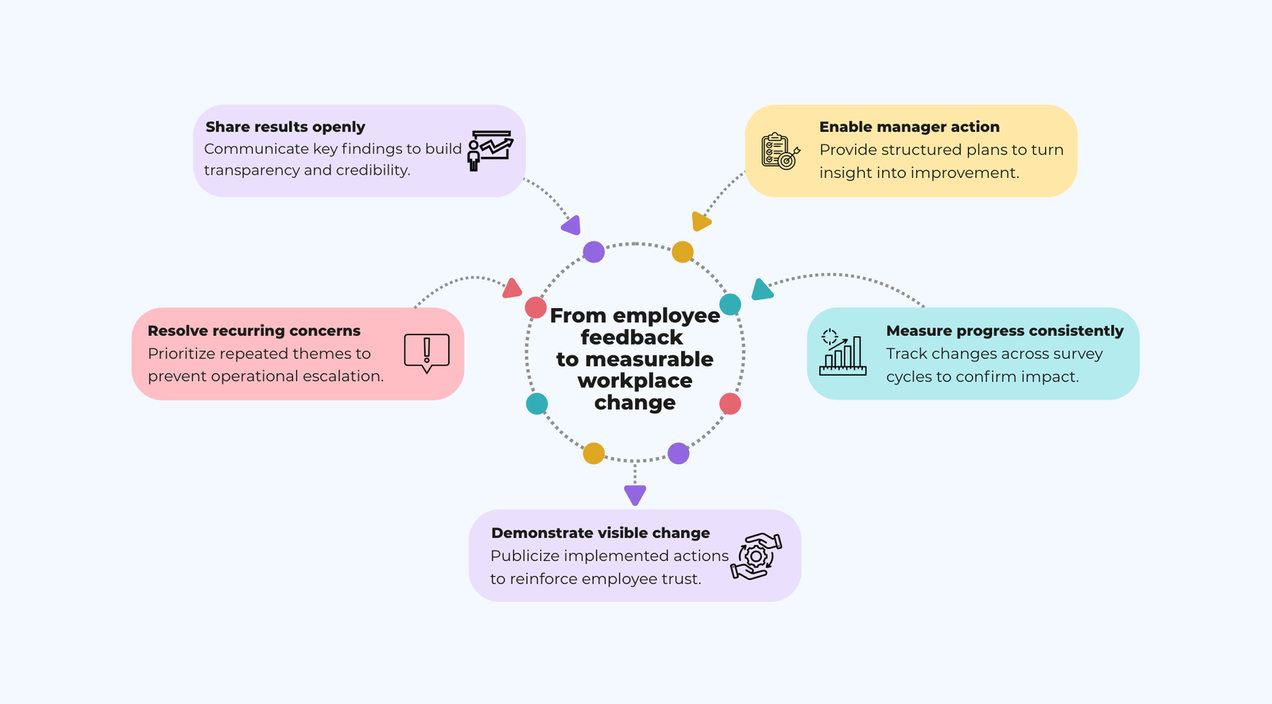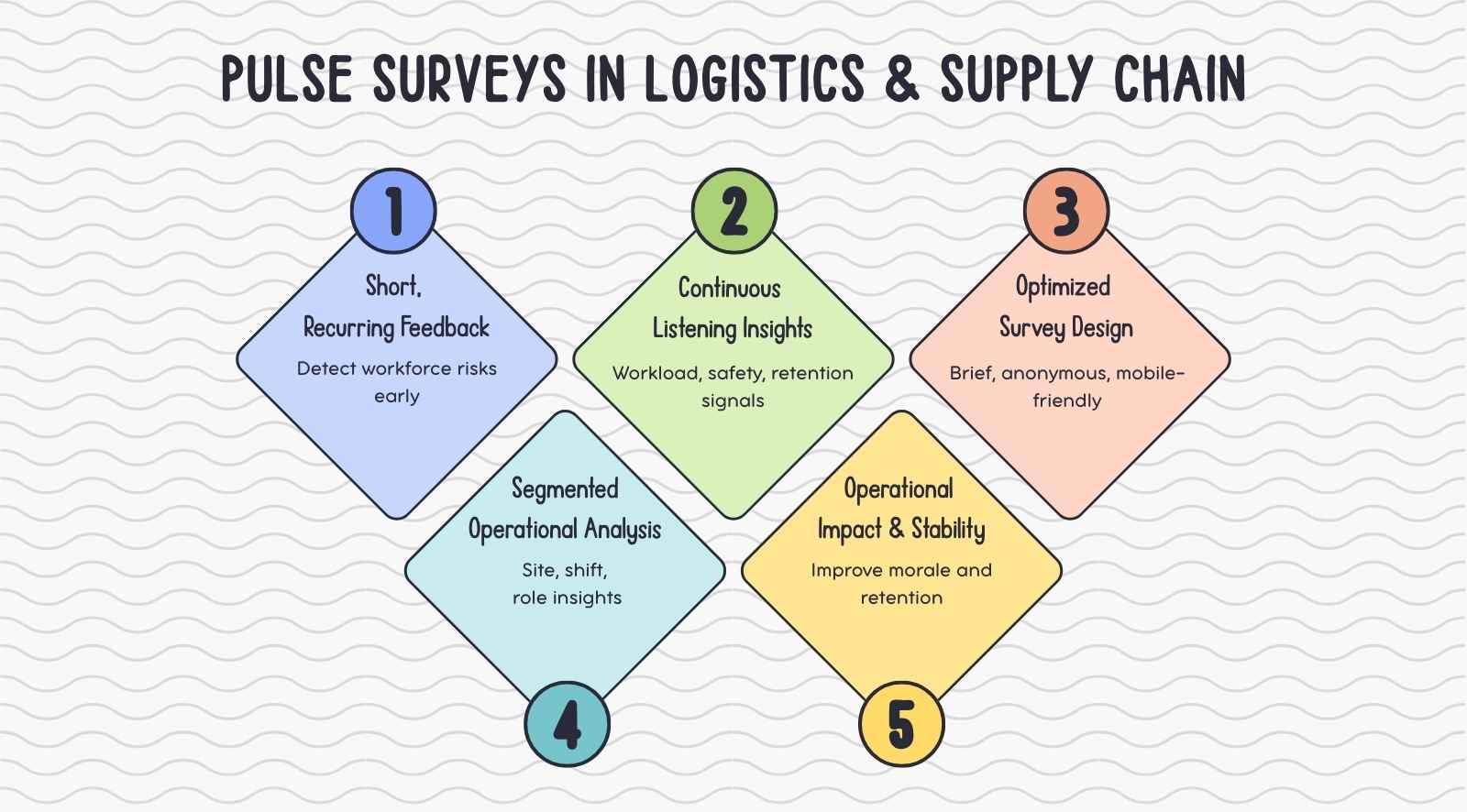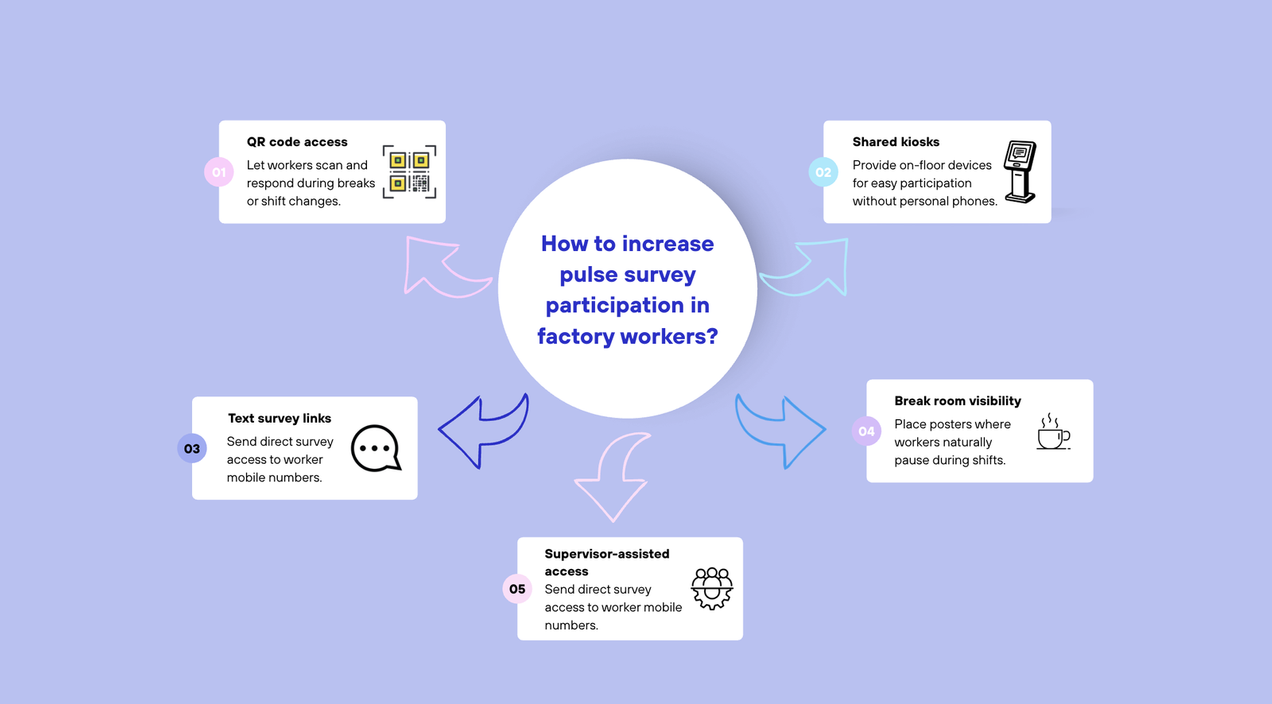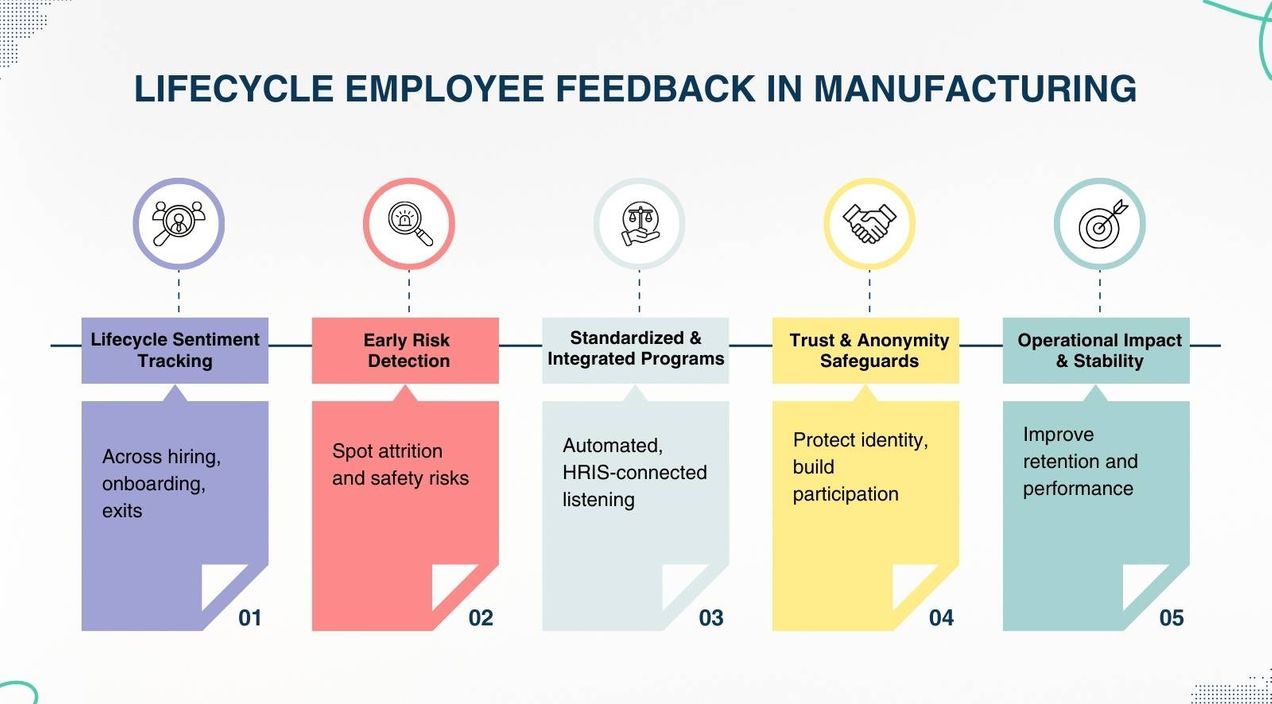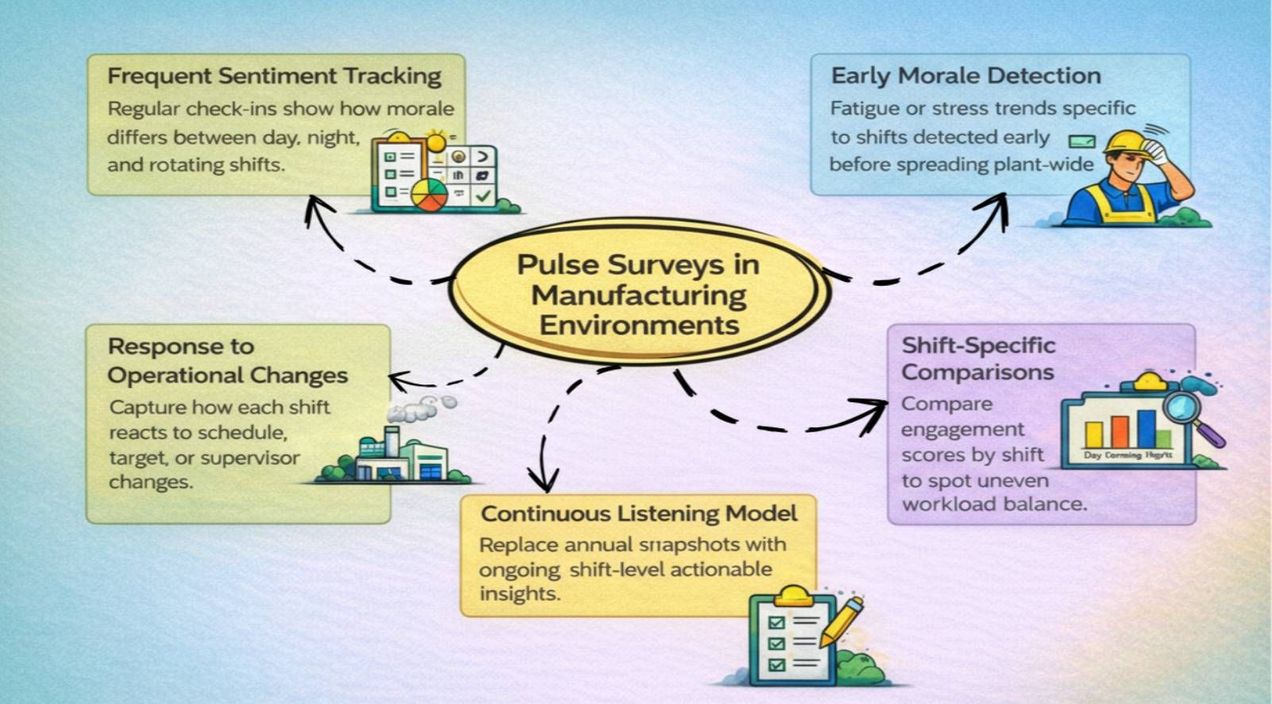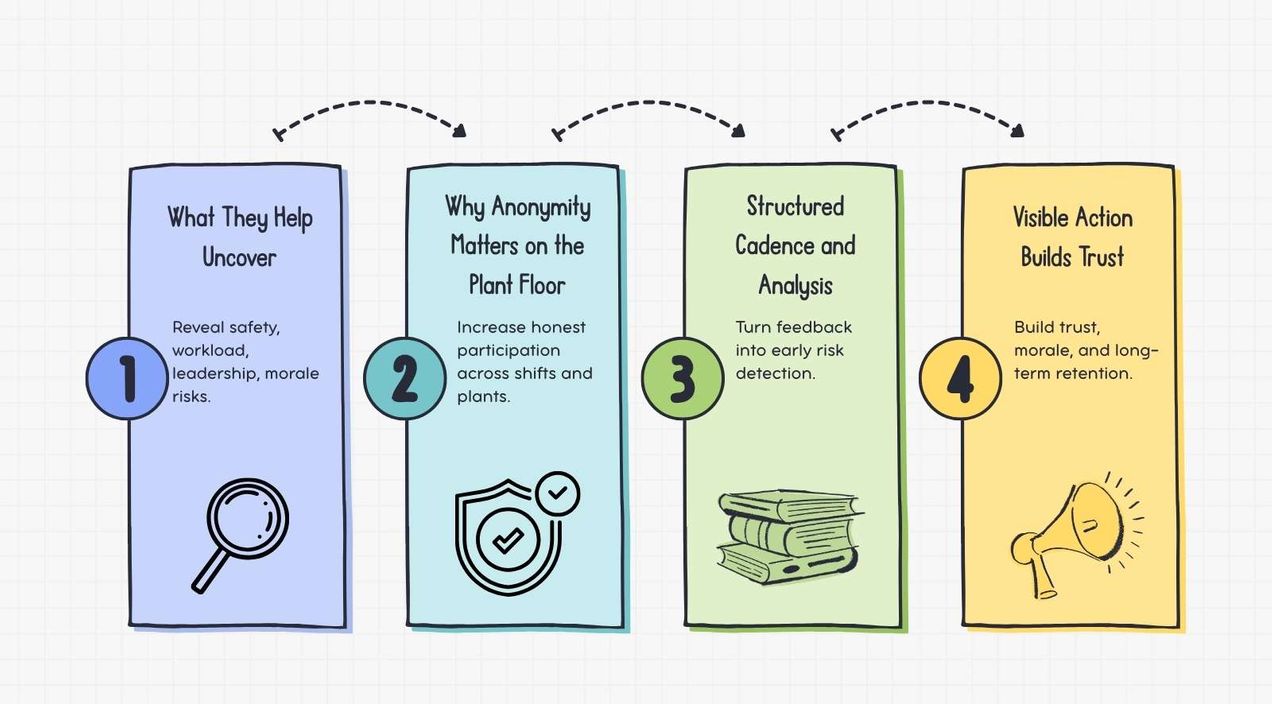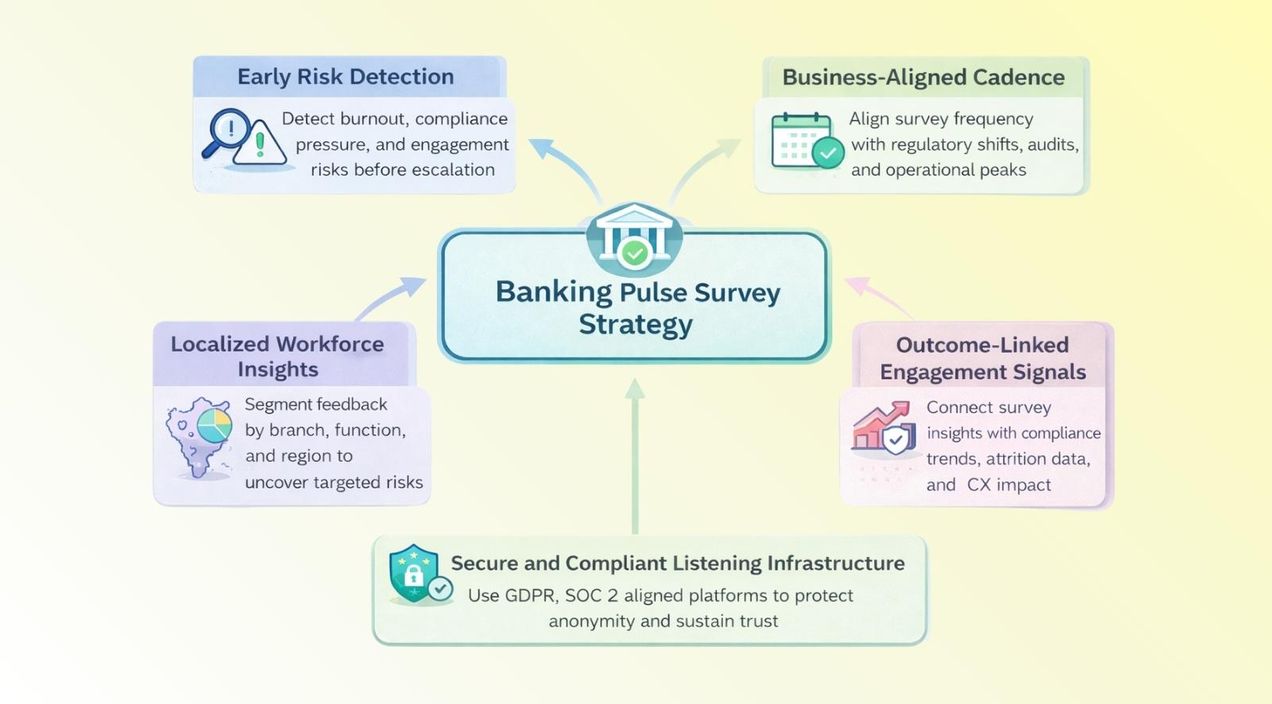CultureMonkey Blog
Employee Engagement Articles

Employee feedback tool statistics & benchmarks 2026: Trends and predictive insights
Employee feedback tool statistics refer to benchmark data on participation rates, engagement drivers, anonymity impact, cadence effectiveness, and predictive trends collected through structured survey platforms to help organizations measure, compare, and improve employee engagement outcomes.
30 Employee satisfaction survey questions to boost engagement in 2026
Discover the key employee satisfaction survey questions to gain valuable insights into your team's happiness and engagement. Uncover what motivates and inspires your employees, and take actionable steps to enhance their satisfaction. Create a positive work environment with the right survey questions
Worker engagement through text message surveys for frontline teams in 2026
Worker engagement through text message surveys is when engagement and pulse questions are delivered directly to employees’ mobiles. By removing email barriers, organizations increase participation and collect more consistent shift-level insights.
What is an employee feedback tool? Types and how they work
An employee feedback tool is a digital system that helps organizations collect, analyze, and act on employee input in a structured way. It centralizes feedback, tracks trends over time, and turns everyday responses into measurable insights leaders can use to improve decisions.
Employee engagement survey software for enterprise guide
Enterprise employee engagement survey software introduces governance layers, structured access control, and operational complexity required by large, multi-entity organizations. It is used by CHROs, HR operations, IT, and risk leaders to manage employee feedback across regions.
Pulse survey vendors vs engagement survey vendors guide 2026
Pulse surveys are short, recurring employee feedback surveys used to monitor workforce sentiment in near real time, and also respect employees' time. Annual engagement surveys are comprehensive assessments conducted once a year to measure engagement drivers across the organization.
Employee satisfaction survey tools: A practical evaluation framework in 2026
Employee satisfaction survey tools are structured platforms used to assess how employees view their work environment, leadership, compensation, workload, and policies. They collect feedback, analyze trends, and help organizations identify friction, improve morale, and support retention.
Best tools for customizable employee surveys: How to customize without breaking data quality
Customizable employee surveys are structured feedback programs that allow organizations to tailor questions, modules, branding, and logic while protecting core engagement drivers, benchmarks, and data integrity to generate reliable, comparable, and actionable insights.
Anonymity thresholds in employee surveys: What right vendors can do
Anonymity thresholds in employee surveys are the minimum number of responses required before results are displayed for a group. If responses fall below that count, reporting is suppressed to protect individual identity while preserving meaningful, aggregated insights for leaders.
Employee engagement survey vendor RFP template: A complete evaluation framework in 2026
An employee engagement survey vendor RFP template is a structured evaluation document that helps organizations compare survey providers based on analytics, security, implementation, and commercial requirements.
Employee engagement survey vendor comparison: The only scorecard you need
Employee engagement survey vendor comparison is the structured evaluation of survey platforms using weighted criteria such as analytics depth, anonymity controls, action workflows, integrations, and scalability to ensure feedback drives measurable business outcomes.
Employee engagement survey vendors pricing: A complete guide in 2026
Employee engagement survey vendors pricing refers to the structured cost vendors use to charge organizations for survey platforms, analytics, integrations, implementation, and support. It varies based on workforce size, feature depth, contract terms, and operational complexity.
How to choose an employee engagement survey vendor: A practical 10-step framework
Choosing the Employee Engagement Survey Vendor is the process of selecting a survey platform that aligns with business goals, protects anonymity, supports segmentation, enables action planning, integrates with systems, and delivers reliable insights for sustained impact.
How to design an effective employee engagement survey: A practical guide for HR and business leaders (2026)
Designing an effective employee engagement survey is the structured process of defining clear objectives, selecting relevant drivers, crafting precise questions, and aligning insights with organizational goals to generate meaningful employee feedback and measurable improvement outcomes.
What is an employee engagement survey? A complete guide for HR and business leaders (2026)
Employee engagement surveys turn employee sentiment into measurable business intelligence. For leaders asking what is an employee engagement survey, it’s a structured workforce engagement measurement that highlights retention risk, productivity gaps, and performance trends.
Measuring morale after peak season workload in logistics teams to detect early burnout signals in 2026
Measure morale after peak season workload in logistics teams by assessing physical and mental recovery, monitoring participation and productivity trends, comparing warehouse performance across regions, and addressing early signs of burnout before attrition rises.
Anonymous engagement surveys for logistics workforces: A practical guide for warehouse and supply chain leaders (2026)
Anonymous engagement surveys for logistics workforces are structured, identity-protected feedback tools that help warehouse and delivery teams share concerns about scheduling, safety, workload, and supervision without fear, enabling leaders to detect operational risks early.
Anonymous employee survey in financial services: A practical guide for banks and financial institutions in 2026
Anonymous employee surveys in finance services are structured feedback systems that allow bank employees to share honest insights on ethics, workload, leadership, and compliance risks without revealing their identity in tightly regulated, high-performance environments.
Pulse surveys in logistics and supply chain operations: A practical guide for HR and operations leaders (2026)
Pulse surveys in logistics & supply chain are short, recurring employee feedback check-ins used to monitor real-time workforce sentiment across warehouses, fleets, and distribution networks, helping leaders detect workload strain, safety risks, and retention issues early.
Pulse survey participation in factory workers: Practical ways to increase response rates in 2026
Increase pulse survey participation among factory workers, keep surveys short, anonymous, shift-friendly, and ensure visible follow-up actions that build trust and lift response rate
Lifecycle employee feedback in manufacturing: A practical guide to listening across the factory employee journey (2026)
Lifecycle employee feedback in manufacturing is a structured approach to collecting employee input at key stages of the factory journey, from hiring and onboarding to development and exit, helping leaders reduce attrition, improve safety, and strengthen operational stability.
Pulse surveys in manufacturing environments to improve retention across plants and shifts in 2026
Pulse surveys in manufacturing environments require a clear strategy, strong employee engagement focus, and practical implementation across shifts and plants. A clear strategy and implementation help improve safety, reduce attrition, and strengthen workforce stability in industrial operations.
Anonymous employee surveys for manufacturing workforces: A practical guide for HR and plant leaders (2026)
Anonymous employee surveys for manufacturing workforces are safe and secure feedback tools that let frontline workers share concerns about safety, workload, supervision, and morale without revealing their identity, helping plant leaders detect risks early and improve operations.
Pulse surveys in Banking & Financial Services: A 2026 guide for HR and risk leaders
A practical guide for banks and financial institutions to design pulse surveys that track employee engagement, detect burnout and conduct risks early, and strengthen compliance culture through secure, continuous employee listening programs across branches and corporate teams.




